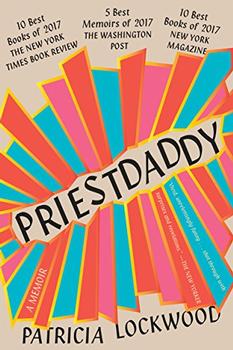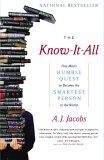Summary | Excerpt | Reviews | Beyond the book | Read-Alikes | Genres & Themes | Author Bio

How Comedy Took Over Our Culture
by Ken JenningsDid you hear the one about the Jeopardy! champion who wrote a book? Ken Jennings might be best known as one of the most successful game-show contestants of all time, but he's far from simply a trivia-spouting machine (as became clear when he was shellacked on Jeopardy! by IBM's Watson supercomputer). Planet Funny isn't Jennings's first foray into nonfiction — in addition to his many trivia compendia, he's published a book on geography and one on the world of cutthroat subculture of competitive trivia. But Planet Funny seems, somehow, like a more ambitious undertaking, or perhaps simply a more urgent one, as everyone from professional comedians to your average Twitter user struggles with whether it's ok — or maybe whether it's imperative — to laugh during the current political and social climate.
Unsurprisingly, given Jennings's penchant for research and his seemingly endless capacity for facts, Planet Funny's primary focus might be on contemporary humor culture, but Jennings takes plenty of time enjoyably tracing the roots and evolution of how we got where we are now. He includes a pages-long list of random places and things he finds amusing and a stunning hand-drawn flow chart illustrating the cross-pollination of dozens of different comedic forms. He also considers at length how technology (primarily online video) has changed the way people familiarize themselves with comedy and comedians. There's a chapter on the changing nature of "jokes" in standup comedy and on comedic television programs, as well as a chapter on the steady creep of humor into advertisements and an extended explication of the different types and manifestations of irony, which would be welcomed as a handout in many an introductory literature course.
Although there's much to unpack in this dense but (surprise!) often very funny survey, his primary point is that today's humor culture — where everyone is ironic all the time, where satirical news programs gain more viewership than straight ones, where social media encourages and rewards constant quipping and riffing and one-liners — can be exhausting and might be damaging our ability to relate to one another in more genuine, snark-free ways. Jennings also considers at length whether political humor is helpful or harmful to political causes (and whether the funniest political candidates are necessarily the best ones), as well as whether some voices (of women and marginalized groups, in particular) are not being heard or appreciated because of the relentless march toward funniness.
Jennings acknowledges the dark underside of comedy (e.g., Louis C.K. or Bill Cosby's predatory behaviors, or Lindy West's years-long attacks by Internet trolls) but admits that he's far from immune to the allure of comedy, and that he loves to "make dumb jokes on social media out of a bottomless need to feel validated by strangers." Nevertheless, he makes a bold suggestion near the book's end, one that may seem like a breath of fresh air to people whose Twitter feeds are overcome by dumb jokes and memes (when they're not overtaken by vitriol): "let's keep some part of the public sphere laughter-optional, so that serious engagement and earnest emotion don't become completely taboo." Jennings's book celebrates humor — It would be a rare reader who comes away from the book without a list of a dozen or more films, television shows, commercials, or comedy sketches to look up online — but it also urges readers to think about humor more critically, to question whether its relentless ubiquity has a purpose, or if it might be healthier to turn down the laugh track once in a while.
![]() This review
first ran in the July 11, 2018
issue of BookBrowse Recommends.
This review
first ran in the July 11, 2018
issue of BookBrowse Recommends.

If you liked Planet Funny, try these:

by Patricia Lockwood
Published 2018
From Patricia Lockwood - a writer acclaimed for her wildly original voice - a vivid, heartbreakingly funny memoir about having a married Catholic priest for a father.

by A. J. Jacobs
Published 2005
Part memoir and part education (or lack thereof), The Know-It-All chronicles NPR contributor A.J. Jacobs's hilarious, enlightening, and seemingly impossible quest to read the Encyclopaedia Britannica from A to Z.
Your guide toexceptional books
BookBrowse seeks out and recommends the best in contemporary fiction and nonfiction—books that not only engage and entertain but also deepen our understanding of ourselves and the world around us.